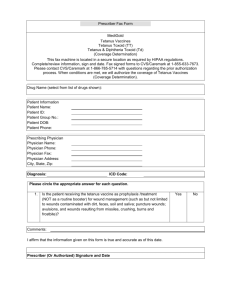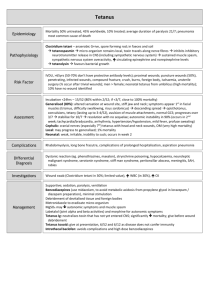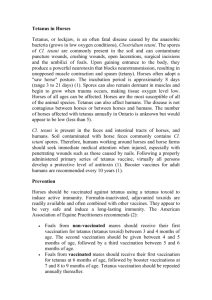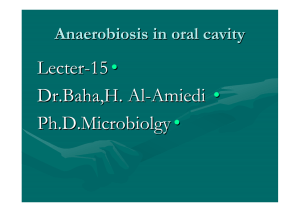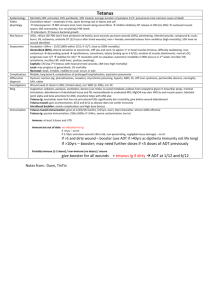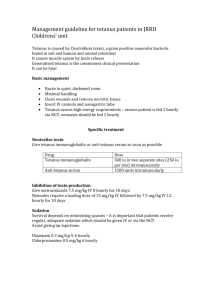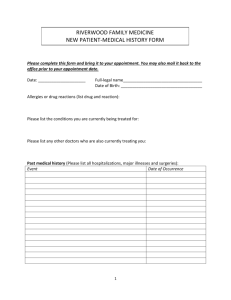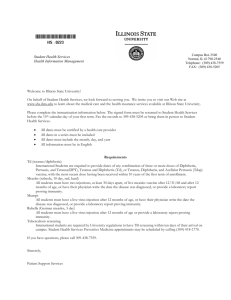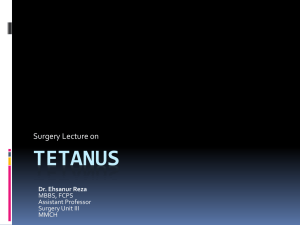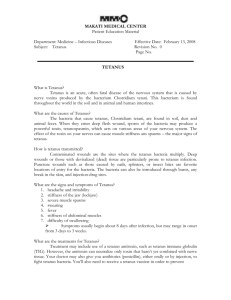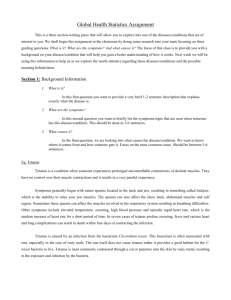The Importance of Tetanus Vaccination
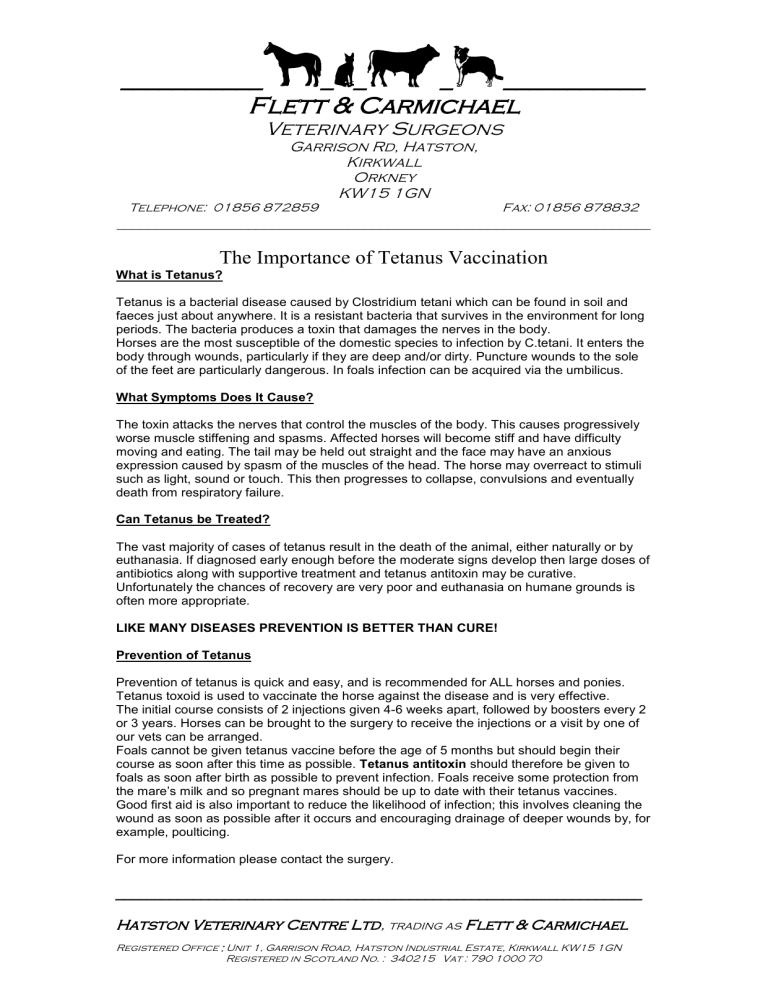
___________ _ _ _ ___________
Flett & Carmichael
Veterinary Surgeons
Garrison Rd, Hatston,
Kirkwall
Orkney
KW15 1GN
Telephone: 01856 872859 Fax: 01856 878832
_____________________________________________________________________
What is Tetanus?
The Importance of Tetanus Vaccination
Tetanus is a bacterial disease caused by Clostridium tetani which can be found in soil and faeces just about anywhere. It is a resistant bacteria that survives in the environment for long periods. The bacteria produces a toxin that damages the nerves in the body.
Horses are the most susceptible of the domestic species to infection by C.tetani. It enters the body through wounds, particularly if they are deep and/or dirty. Puncture wounds to the sole of the feet are particularly dangerous. In foals infection can be acquired via the umbilicus.
What Symptoms Does It Cause?
The toxin attacks the nerves that control the muscles of the body. This causes progressively worse muscle stiffening and spasms. Affected horses will become stiff and have difficulty moving and eating. The tail may be held out straight and the face may have an anxious expression caused by spasm of the muscles of the head. The horse may overreact to stimuli such as light, sound or touch. This then progresses to collapse, convulsions and eventually death from respiratory failure.
Can Tetanus be Treated?
The vast majority of cases of tetanus result in the death of the animal, either naturally or by euthanasia. If diagnosed early enough before the moderate signs develop then large doses of antibiotics along with supportive treatment and tetanus antitoxin may be curative.
Unfortunately the chances of recovery are very poor and euthanasia on humane grounds is often more appropriate.
LIKE MANY DISEASES PREVENTION IS BETTER THAN CURE!
Prevention of Tetanus
Prevention of tetanus is quick and easy, and is recommended for ALL horses and ponies.
Tetanus toxoid is used to vaccinate the horse against the disease and is very effective.
The initial course consists of 2 injections given 4-6 weeks apart, followed by boosters every 2 or 3 years. Horses can be brought to the surgery to receive the injections or a visit by one of our vets can be arranged.
Foals cannot be given tetanus vaccine before the age of 5 months but should begin their course as soon after this time as possible. Tetanus antitoxin should therefore be given to foals as soon after birth as possible to prevent infection. Foals receive some protection from the mare’s milk and so pregnant mares should be up to date with their tetanus vaccines.
Good first aid is also important to reduce the likelihood of infection; this involves cleaning the wound as soon as possible after it occurs and encouraging drainage of deeper wounds by, for example, poulticing.
For more information please contact the surgery.
____________________________________________________________________
Hatston Veterinary Centre Ltd, trading as Flett & Carmichael
Registered Office : Unit 1, Garrison Road, Hatston Industrial Estate, Kirkwall KW15 1GN
Registered in Scotland No. : 340215 Vat : 790 1000 70
